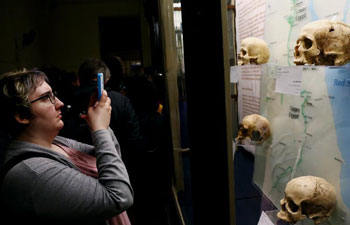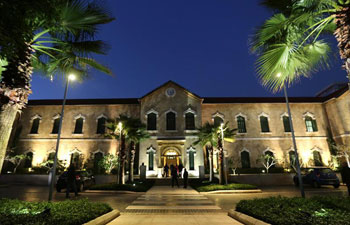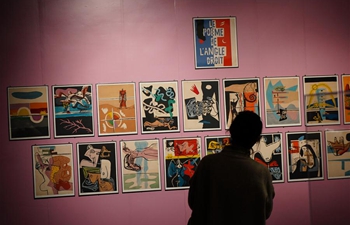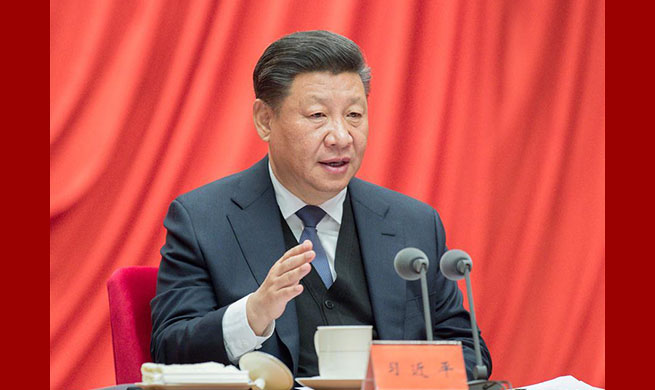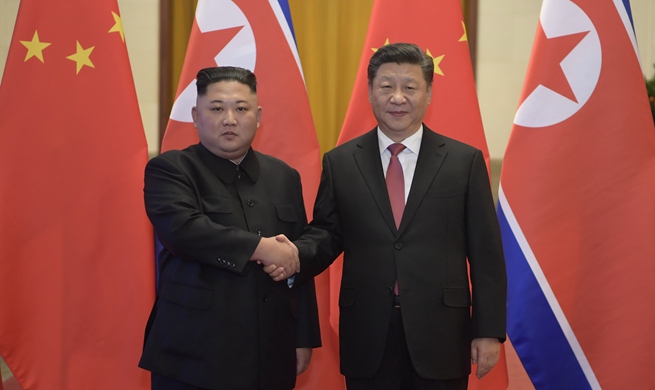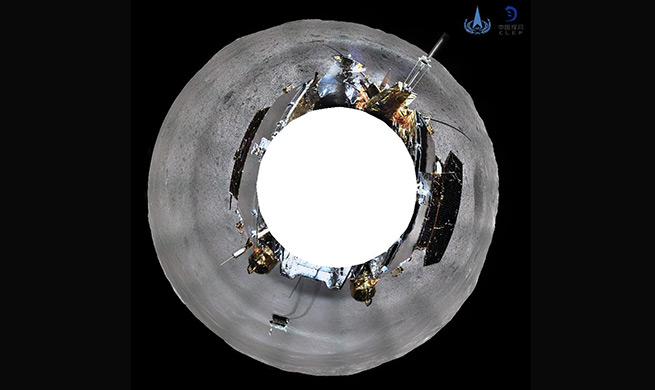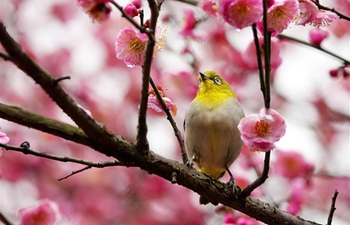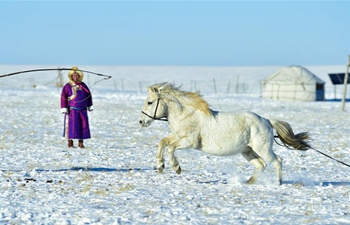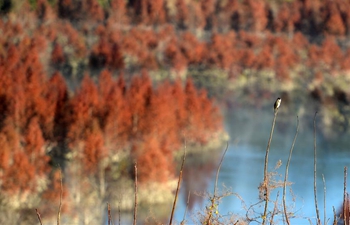BAGHDAD, Jan. 11 (Xinhua) -- If Iraq is known for anything, it must be date palm trees with over 400 types. The palm tree is one of Iraq's cultural symbols.
One of the dates' high nutritional products is the molasses, locally known as "debis" and dubbed as "poor's honey."
Almost every Iraqi house used to plant at least one tree in their gardens. At present, many people with smaller houses are still keen to keep a tree if possible.
The date palm tree in Iraq is as old as the history of Mesopotamia Plain, with archeological evidences indicating date was cultivated since ancient times in the area.
The date palm is also a major fruit crop in most of the Middle East countries. It has been strongly connected with sustaining human life and tradition of the people in the old world as a major agriculture crop.
From leaves, roots, trunks to date pits, everything in the palm tree is put to good use in Iraq.
Dates' molasses is delicious with a plethora of health benefits. The dates' molasses is bone booster, diabetes-friendly and a good treatment for anemia as it is a good source for iron in the body.
Because of its delicious taste and low price, the molasses has become the gem of the table for the poor families, as well as being highly desired by hundreds of thousands of Iraqi families who have suffered from displacement and malnutrition across the country.
At a refugee camp in Iraq's eastern province of Diyala, Ruaa Sabah, a housewife in her 40s told Xinhua that "one of my most important priorities is to get some dates and molasses from time to time as there is always shortage of food supply due to massive number of displaced families in the camp."
"The molasses is a way to sustain life for my four children. It is food and medicine rather than something delicious that the children love," said Sabah who fled her house in late 2015 after the Iraqi security forces launched three years of major offensives that liberated the Iraqi cities from the extremist Islamic State (IS) militants.
"For my family, we resorted to molasses when I suffered from anemia and a woman, I know, told me to focus on eating dates and sip molasses from time to time. Then I no longer get dizzy and my energy levels went up," Sabah added.
In many areas across Iraq, molasses making is considered an ancient industry passed down by generations.
Um Abdullah, an old woman who lives on making molasses in her modest house in the town of Qazaniyah, some 175 km northeast of Baghdad, told Xinhua "making dates honey (molasses) is the job of women because it needs effort and patience, and no one like a woman can give tenderness and hope for people."
The drop in temperature levels across Iraqi cities in winter is met with an increase in palm date molasses consumption in Iraq.
Haider al-Mandalawi, a government official in the town of Mandely, some 150 km northeast of Baghdad, was proud of his town production of molasses saying "it is a very ancient business in my town and is still keeping its old primitive process that based on simple tools and sunlight."
"The molasses here is of a high quality with its golden color, and its price sometimes reaches 5,000 Iraqi dinars, or less than three dollars per liter. It is affordable even for the low-income people," al-Mandalawi said.
Mohammed Ibrahim, a nutrition expert, told Xinhua that the date molasses has been a staple for the Iraqi family table for centuries.
"It provides the human body with high calories and a variety of nutrients, it's an excellent source for Calcium, Iron, Zinc and many other minerals and Vitamins and it's an essential ingredient in many traditional dishes," Ibrahim said.
The process of making molasses begins with boiling the dates until they are softer and easier to mash, which are then put in a plastic gunny bag and pressed to extract the syrup. It will be finally left under the sunlight for two weeks for slow evaporation until getting the thick molasses.
With interest and desire by locals, the traditional industry of molasses is in an urgent need for government protection to local industry, which is basically considered better quality than the imported molasses.
Hameed Yousif, a Kurdish farmer in Khanaqin area in eastern Iraq, said that "99 percent of the molasses in the market is imported from outside Iraq, while the local molasses production cannot compete the imported one in the markets despite the better quality of the local production."
Many people believe that if the local molasses industry has the support and protection from the Iraqi authorities, it would provide job opportunities to many Iraqis, especially women who take an overwhelming majority of the workers in the molasses industry and can achieve self-sufficiency after a short period of time.







